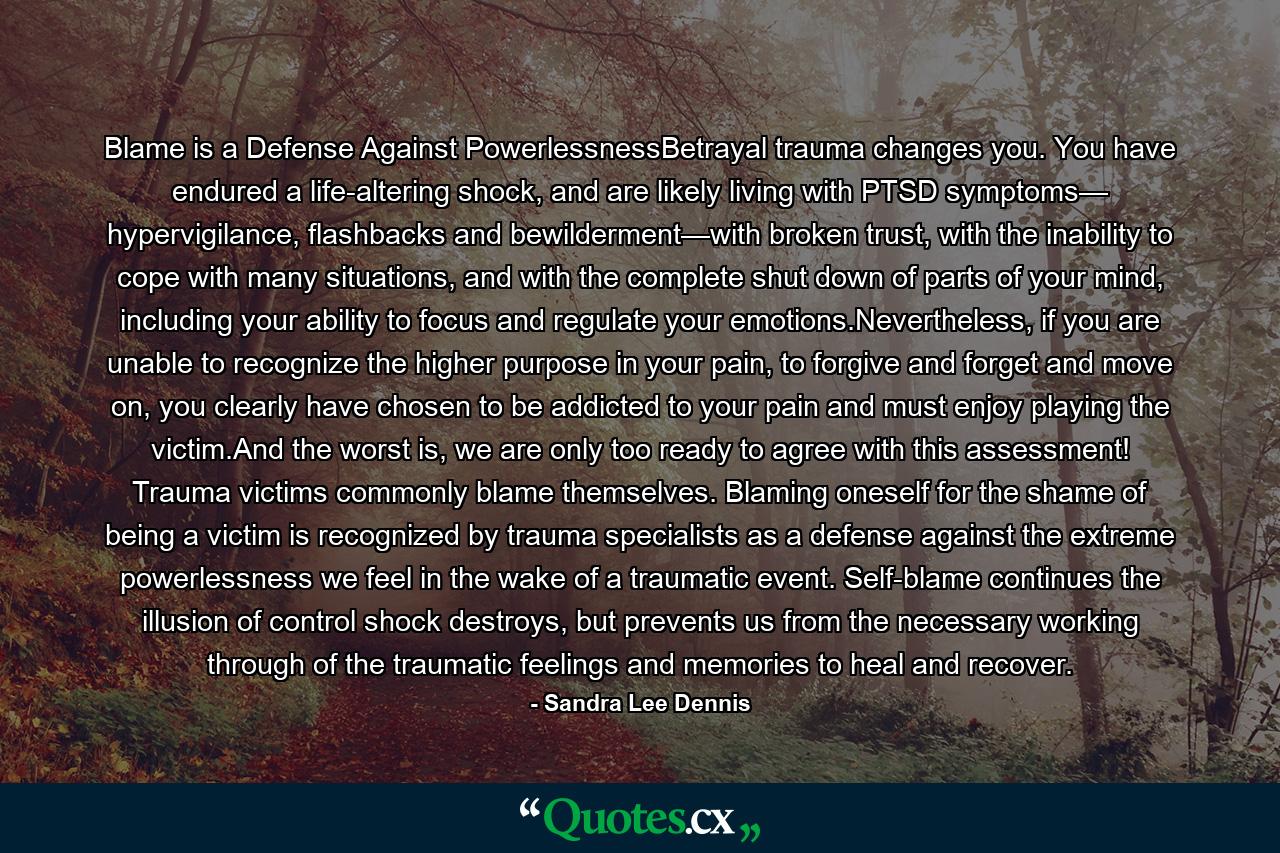Blame is a Defense Against PowerlessnessBetrayal trauma changes you. You have endured a life-altering shock, and are likely living with PTSD symptoms— hypervigilance, flashbacks and bewilderment—with broken trust, with the inability to cope with many situations, and with the complete shut down of parts of your mind, including your ability to focus and regulate your emotions.Nevertheless, if you are unable to recognize the higher purpose in your pain, to forgive and forget and move on, you clearly have chosen to be addicted to your pain and must enjoy playing the victim.And the worst is, we are only too ready to agree with this assessment! Trauma victims commonly blame themselves. Blaming oneself for the shame of being a victim is recognized by trauma specialists as a defense against the extreme powerlessness we feel in the wake of a traumatic event. Self-blame continues the illusion of control shock destroys, but prevents us from the necessary working through of the traumatic feelings and memories to heal and recover.
About The Quote
- Affect
- Affect Regulation
- Betrayal
- Betrayal Bond
- Betrayal Trauma
- Betrayal Trauma Theory
- Blame
- Control
- Emotional Health
- Emotions
- Higher Purpose
- Hypervigilance
- Illusion
- Memories
- Mental Health
- Mental Illness
- Out Of Control
- Posttraumatic Stress
- Posttraumatic Stress Disorder
- Powerlessness
- Ptsd
- Regulate Emotions
- Self Blame
- Shock
- Trauma
- Trauma Victims
- Traumatic
- Traumatic Experiences
- Traumatic Memories
- Traumatized
- Victim Blaming
- Victimhood
- Victimization
- Victims
